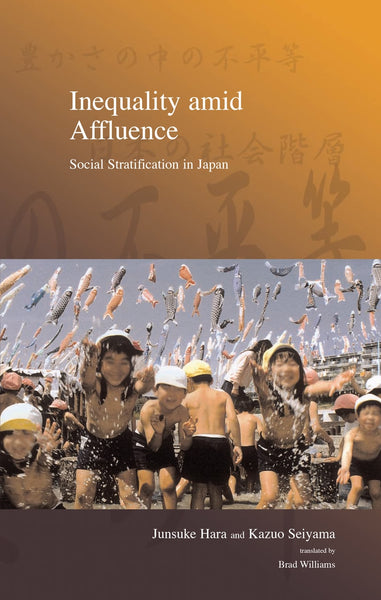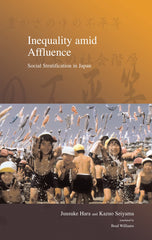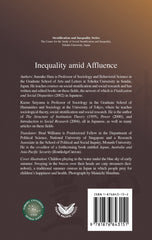Inequality amid Affluence
Many In Stock
Highlighting the limits of existing approaches in the study of stratification in contemporary Japanese society, Inequality Amid Affluence adopts a new framework that distinguishes between the concepts of 'basic wealth' and 'upper wealth.' This book argues that most Japanese have attained a level of income in which they no longer suffer from poverty and starvation while the majority of Japanese children now advance to high school. Japan has therefore achieved an equalization of 'basic wealth.' However, at the same time, there has been no progress whatsoever towards the equalization of 'upper wealth.' Specifically, there is inequality in many areas including income, assets, academic background, occupation, gender and lifestyles. Japan can be characterized as an affluent society in which particular forms of inequality exist.
About Editors and Authors
HARA Junsuke
HARA Junsuke is a Japanese sociologist and Professor Emeritus at Tohoku University. He specializes in sociology, mathematical sociology and behavioral science. He graduated from the Department of Sociology, Faculty of Letters, University of Tokyo, and after serving as Associate Professor at Yokohama National University and as Professor at Tokyo Metropolitan University, he took up a professorial position at Tohoku University in 1994. He also served as Dean of the Graduate School of Letters at Tohoku University. He retired from Tohoku University in 2009. His work focused on the social stratification and inequality of Japanese society.
SEIYAMA Kazuo
SEIYAMA Kazuo is a Japanese sociologist, Professor at Kwansei Gakuin University and Professor Emeritus at the University of Tokyo. He specializes in mathematical sociology. He received a PhD in Sociology from the University of Tokyo in 1996, and has conducted analysis of the social stratification and inequality of Japanese society using statistics derived mainly from the SSM survey (the National Survey of Social Stratification and Social Mobility).


